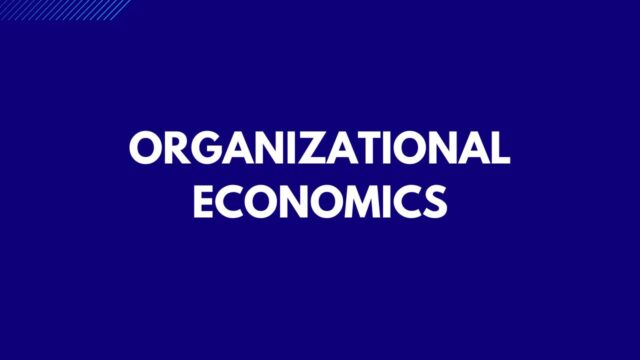
What is organizational economics and what does it study
Organizational economics is a branch of economics that studies how individuals and firms interact within the context of organizations such as corporations, partnerships, and Sole proprietorships. It also studies how these organizations impact the economy as a whole. Major topics of study in organizational economics include contract theory, incentives, and organization design. Additionally, organizational economics often uses game theory to analyze interactions between firms. Organizational economics is a relatively new field, but it has already made significant contributions to our understanding of how businesses operate and how they impact the economy.
The history of organizational economics
Organizational economics is the study of how businesses and other organizations use resources and make decisions. It emerged as a field in the early 20th century, as economists began to apply game theory and other tools of economic analysis to business decisions. Since then, organizational economics has been used to analyze a wide variety of topics, from the optimal design of managerial incentives to the role of information asymmetries in financial markets.
Organizational economics has also been applied to understand the behavior of government agencies, non-profit organizations, and even criminal enterprises. In recent years, the field has seen a renewed interest in issues related to the sharing economy, such as Uber and Airbnb. As businesses continue to evolve and operating environments become more complex, organizational economics will remain an important tool for understanding and predicting their behavior.
The key concepts in organizational economics
The key concepts in organizational economics include production, cost, revenue, profit, and competition. Production refers to the process of creating goods or services. Cost refers to the amount of resources that a firm must expend in order to produce a good or service. Revenue is the income that a firm receives from selling its goods or services. Profit is the difference between a firm’s revenue and its costs.
Competition is the process by which firms compete for scarce resources. Organizational economics helps us to understand how these concepts interact with one another and how they affect the decisions that organizations make. By understanding these concepts, we can better assess the impact of different policies on organizations and their ability to produce goods and services.
How has organizational economics been applied to the real world
Organizational economics has been applied to a variety of real-world problems, ranging from designing better sales incentives to understanding why companies downsize. In recent years, researchers have also begun to use insights from organizational economics to design better algorithms for online search engines and social media platforms. As our world becomes increasingly interconnected, it is likely that organizational economics will continue to be a valuable tool for understanding and improving the performance of businesses and other organizations.
Some criticisms of organizational economics
One common criticism is that organizational economics neglects the role of institutions in shaping firms’ behavior. For example, organizational economists often assume that firms are free to choose their own organizational structures and governance arrangements. However, in many countries, firms are required to follow certain rules and regulations set by government institutions. As a result, critics argue that organizational economics fails to take into account the important role that institutions play in shaping firm behavior.
Another criticism of organizational economics is that it relies too heavily on game theory. Game theory is a branch of mathematics that studies how people interact with each other when they have conflicting interests. Critics argue that game theory does not provide an accurate representation of real-world behavior, because it assumes that people are rational and selfish. Finally, some critics argue that organizational economics places too much emphasis on competition, and fails to take into account the role of cooperation in organization life. While there is merit to these criticisms, overall, organizational economics remains a useful tool for understanding firm behavior.
The future of organizational economics
In the future, organizational economics is likely to become even more important as businesses increasingly rely on technology to communicate and collaborate with each other. Additionally, the globalization of the economy is likely to lead to more organizations operating in different countries and across different cultures.
As a result, organizational economics will need to take into account the impact of cultural differences on business interactions. Finally, the rise of the gig economy is likely to result in more businesses being operated by independent contractors rather than traditional employees. This could have a major impact on how organizationally efficient businesses are able to be. All of these factors point to a bright future for organizational economics as a field of study.

































